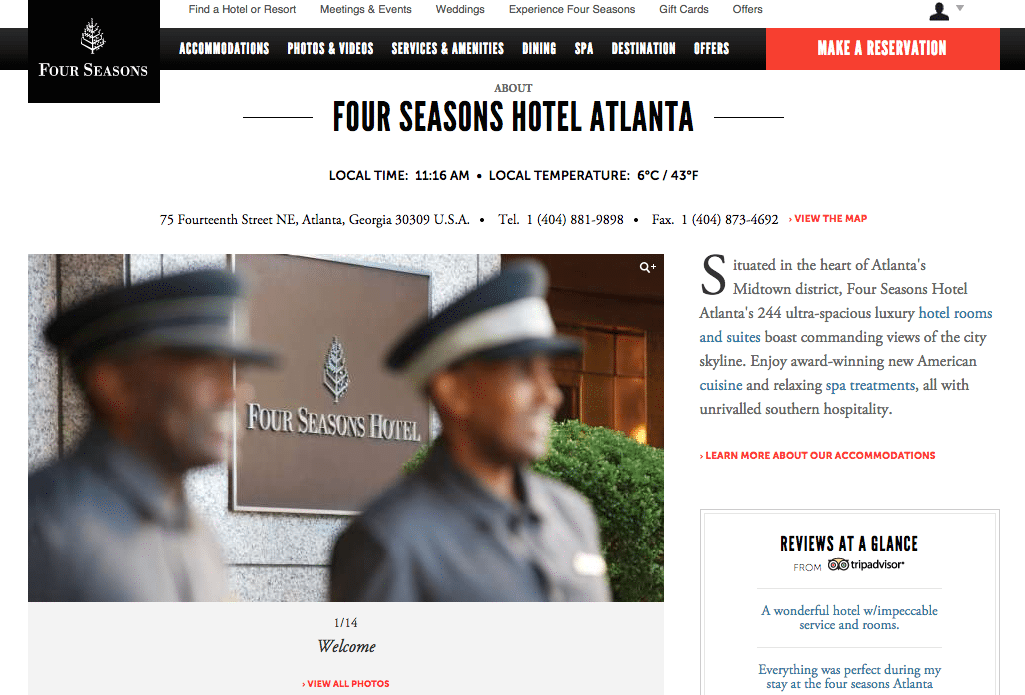Skift Take
In order for hotels to drive direct bookings, it's better to keep customers engaged and on their websites by providing an unbiased, less controlled take on the property than have them leave and seek out other review and booking channels.
When TripAdvisor launched in 2000, not many people cared about regular travelers’ thoughts about hotels, attractions, or travel in general.
Except their friends, of course.
User reviews, which quickly gained popularity as online booking grew, became a threat to hotels and traditional media that could no longer controlled the message of how strong their shower pressure was or friendly the pool staff had been.
One only need look at the rise of TripAdvisor as one of the most trusted travel resources to see the consumer strength in peer recommendations and reviews.
TripAdvisor first offered self-service widgets, such as “recommended on” and “rated on” badges, to hoteliers in 2008. The first review display hotel partner was ClubMed in the U.S. and Canada; they went live with TripAdvisor ratings and reviews in 2009.
In 2012, more major brands such as La Quinta Inns & Suites, Wyndham Hotel Group, and Best Western International embraced user-generated reviews and third-party sites like TripAdvisor.
“If you have content that’s relevant and people who are interested in reading it then that’s far more powerful [than traditional advertising], especially if it’s a third-party doing it,” Best Western CEO David Kong told Skift in a recent interview.
“If it’s your friends or family or someone that you respect then that’s far more powerful and there’s an emotion connection associated with it.”
In April 2013, TripAdvisor recognized hoteliers’ desire for some semblance of control and debuted a new review widget that shows just one glowing 5-star TripAdvisor review at a time, available for hotels that are rated 4 or 5 stars on TripAdvisor.
Fast forward to 2015 and user reviews are now at the heart of online travel research and booking, so much so that hotel brands across all sectors feature such reviews prominently on their websites.
A 2013 PhoCusWright poll, conducted on behalf of TripAdvisor, found that more than half of consumers do not make a booking decision without reading reviews from others.
Skift recently published a series of interviews with major hotel group CEOs, many of whom highlighted reviews and digital content as important communication tools for the future.
“The more you know about my hotels and what you can do there, the better chance we have of you coming and seeing us,” says Starwood CEO Frits van Paasschen.
“It’s the same reason we put ratings and reviews on SPG.com. We’re not 100 percent correct every time, but I’ll put us up against the reality anywhere else any time.”
Controlling the Message
Four Seasons began running TripAdvisor reviews on its properties’ pages in 2013, following a website relaunch.
“I felt that being upfront about user-generated content would demonstrate incredible confidence in what we do,” Susan Helstab, Executive Vice President of Marketing told Skift. “And I don’t believe there’s a guest that’s stayed with us that hasn’t gone to TripAdvisor.”
Other brands have been slower to introduce reviews directly on their site. For example, Marriott’s significant and, no doubt, expensive focus on brand-controlled content is even more interesting in light of its apparent resistance to user-generated reviews.
Marriott started collecting Marriott Verified Reviews in July 2014 and displaying them in October 2014. The Verified Reviews display ratings and reviews from confirmed “stayed and paid” guests for a hotel as long as there are a minimum of five reviews.
It’s recent launch of its content creation unit could be seen as another effort to control the Marriott brand as much as possible, which could impact the hotel in the long run.
It’s worth noting, however, that Marriott’s attempt to control the brand image and integrate that into the fabric of its customers’ everyday digital lives as almost-unbranded media highlights the marketing savvy of the corporation’s executives.
“You’re most likely to remember something if a friend recommends it,”David Beebe, vice president of global creative and content marketing at Marriott International, explained to AdWeek.
“We want to take that same approach as a brand through building engaging content communities through social platforms.”
Have a confidential tip for Skift? Get in touch
Tags: hilton, hyatt, intercontinental hotel group, marriott, starwood, ugc
Photo credit: TripAdvisor reviews appear on Four Seasons' website. Four Seasons Hotel
